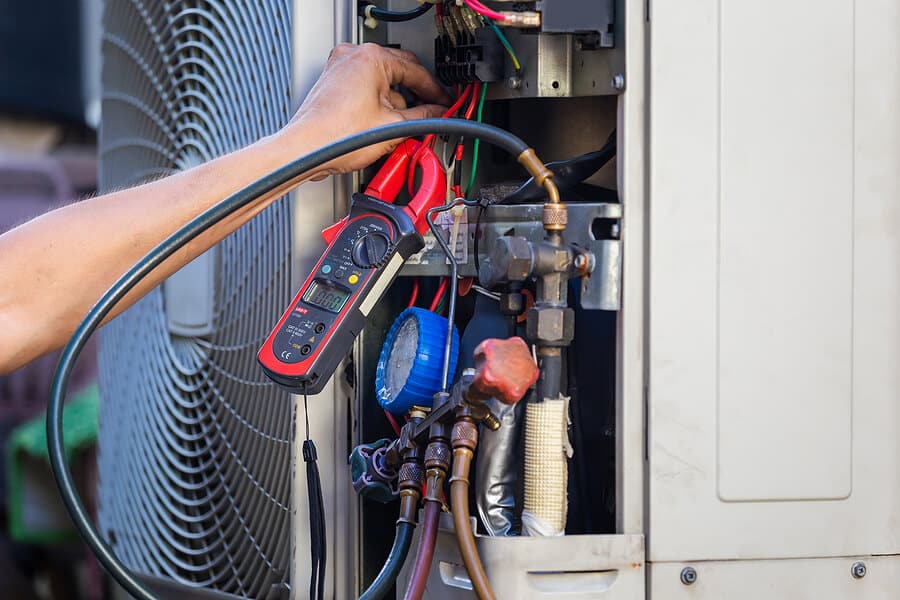Just How to Select the Right A/c System for Your Demands
Selecting the proper HVAC system is an essential decision that calls for cautious factor to consider of different variables. The myriad of system types readily available can complicate this process, leading one to ask yourself which course eventually leads to optimum comfort and effectiveness.
Evaluate Your Home Dimension
Examining your home dimension is a critical first step in selecting the appropriate Heating and cooling system. A Heating and cooling system that is as well little will have a hard time to preserve comfortable temperatures, leading to enhanced energy usage and use on the device.
To precisely assess your home dimension, gauge the square video of each area, taking into consideration aspects such as ceiling elevation and the design. Furthermore, consider the insulation quality and the number of home windows, as these components impact thermal performance. Homes with open layout might require different system arrangements contrasted to those with lots of split spaces.
Making Use Of the Guidebook J tons calculation method can give a much more accurate estimate of your cooling and heating requires. This technique accounts for numerous aspects, including neighborhood environment, solar gain, and occupancy patterns. By carefully reviewing these elements, you can ensure that your picked a/c system is properly sized, leading to boosted comfort, power performance, and durability of the equipment.
Determine Your Spending Plan
Establishing your budget plan is a pivotal action in the a/c system choice procedure, as it sets the criteria for your choices - DMAKS HVAC. A HVAC system is a substantial investment, and recognizing your financial restrictions will assist limit options that fit within your ways
Begin by analyzing not just the preliminary purchase rate however also installment expenses, which can vary significantly relying on the intricacy of the project. In addition, take into consideration recurring costs such as upkeep, repairs, and energy intake. A system might show up budget friendly initially however can cause greater prices over time if it is less effective.
It is a good idea to allot a backup fund for unanticipated expenses that might arise during installation or preliminary system modifications (DMAKS HVAC). Furthermore, discover funding alternatives or discounts that might be offered, as these can ease the worry of upfront costs
Inevitably, having a clear budget plan allows you to involve with cooling and heating experts better, ensuring you obtain customized guidance that straightens with your monetary goals and home demands. By being persistent concerning your budget plan, you can make informed choices that enhance convenience without compromising economic stability.
Evaluate Power Efficiency
Power effectiveness plays an essential function in the total performance and cost-effectiveness of your cooling and heating system. When choosing a system, it is important to consider its power performance scores, as these numbers directly affect your energy expenses and ecological footprint. Try to find systems with a high Seasonal Power Efficiency Proportion (SEER) for cooling down and a high Annual Gas Utilization Effectiveness (AFUE) ranking for heating. Higher rankings indicate higher performance, implying even more convenience for less energy usage.
Furthermore, think about the Power Celebrity certification, which symbolizes that the system fulfills rigorous efficiency guidelines set by the Environmental Security Company. Spending in a Power Star-rated HVAC system can result in considerable cost savings gradually, specifically in locations with severe temperature level variations.
An additional variable to review is the system's dimension and ability. An extra-large or small device can bring about inadequacy and raised power prices. DMAKS HVAC. Correct sizing, usually determined via a Hand-operated J lots estimation, makes certain that the system runs at ideal effectiveness


Think About Environment and Setting
When selecting an a/c system, it is critical to think about the regional climate and environmental problems, as these aspects dramatically affect the system's efficiency and efficiency. Different regions experience differing temperature extremes, moisture degrees, and seasonal adjustments, every one of which influence home use this link heating and cooling down needs.

Furthermore, neighborhood environmental variables, such as air quality and possible allergens, must inform your option. Equipments geared up with innovative filtration innovations can aid reduce toxins and provide cleaner air. Furthermore, take into consideration the a fantastic read energy resources readily available in your area-- some a/c systems are more effective when powered by gas or eco-friendly energy sources.
Eventually, straightening your HVAC system choice with your neighborhood environment and environmental considerations will result in improved comfort, boosted efficiency, and reduced energy costs.
Explore System Types and Attributes
As home owners look for to optimize convenience and performance, checking out the numerous sorts of a/c systems and their distinct functions becomes crucial. The main kinds of HVAC systems include air conditioning, warmth pumps, ductless mini-split systems, and heaters. Each system offers distinct advantages customized to various demands and choices.
Central air conditioning systems provide uniform air conditioning throughout a home, making them optimal for bigger spaces. Heatpump offer as both heating and cooling services, making use of electrical power to transfer heat, which can cause lower power prices. Ductless mini-split systems are ending up being significantly preferred as a result of their flexibility and convenience of installment, permitting home owners to control the temperature in individual rooms without extensive ductwork.

Verdict
To conclude, choosing the suitable HVAC system necessitates cautious consideration of various aspects, consisting of home dimension, check these guys out spending plan constraints, energy efficiency, local climate, and offered system types. A detailed assessment of these elements ensures optimal comfort and cost-effectiveness. By following a structured strategy, property owners can make informed decisions that align with their certain demands and choices, eventually causing improved indoor air high quality and energy savings.